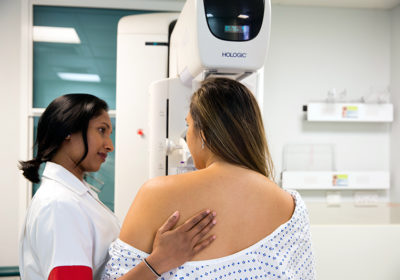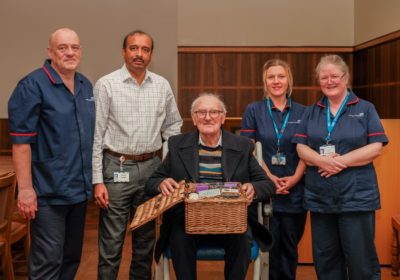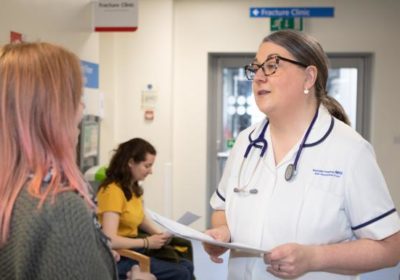Concern about confidentiality, the use of technology and lack of continuity of care were all raised as issues by respondents to the research.
North East & North Cumbria Integrated Care Board (NENC ICB) asked Healthwatch through its work on the Living Well Alliance framework to gather insights into the mental health care experiences of older people.
NENC ICB specifically wanted to know if older people felt they experienced ageist attitudes and assumptions about their mental health which led to them being excluded from services and support that could help them to enjoy a healthier and happier later life.
Between May and September 2024, our engagement team spoke to 123 patients aged 65+ in 12 healthcare settings, asking them the following question provided by NENC ICB: “When you meet professionals in health and social care, do they ask about your mental health?”
Our key findings included:
- Physical health was the main focus of health care professionals within GP surgeries.
- Lack of face-to-face appointments were a barrier to opening up about mental health.
- Ten-minute appointments did not lend themselves to fuller discussions needed to talk about more than one concern.
- Technology including e-consult was a barrier for many.
- Stigma remains an obstacle in asking for support.
- Confidentiality, mental health signage and public reception areas were some of the barriers identified to ask for support.
- Continuity of care was raised as a concern in terms of having the right relationships to open up about mental health.
- Younger doctors were seen to be more in tune with mental health needs.
- Some older people were very open to self-help and the greater promotion of this would be welcomed.
Of the participants, 66% were female, and 99% were white British. Through our conversations across various groups, there were several clear themes.
Time constraints
Participants highlighted that time constraints during doctor’s appointments often discouraged them from seeking help for their mental health. One said: “You are told that you only have so long with the GP, they don’t have the time, and I wouldn’t ask for two separate things.”
Many expressed that using e-consult services can be particularly challenging. A significant number of participants said they do not own a mobile phone or use a computer, making technology a barrier for some.
Throughout discussions the word stigma was used, although participants acknowledged that mental health is more widely discussed today. One said: “It’s embarrassing to talk about your mental health, I would like them to initiate the conversation.”
Participants told us that re-phrasing the term ‘mental health’ would go some way to removing the stigma attached.
Lack of attention
Perceptions identified within several groups were that as you get older the doctors “don’t care”, and many health issues are put down to your age. One participant described the experience of talking to a doctor as feeling like “talking to a brick wall”, citing a lack of eye contact as doctors focus on their computers.
Many expressed frustration at rarely seeing the same doctor twice, believing this harms the doctor-patient relationship.
We also received positive feedback, with a number of participants noting that younger doctors are seen as more attuned to mental health issues.
Many respondents acknowledged that their physical health affects their mental well-being. Several emphasised the importance of self-care, highlighting the value of regular check-ups, such as annual MOTs or well-women clinics, in taking personal responsibility for their health.
Participants shared various strategies for supporting their mental health, including healthy eating, regular exercise, and combating social isolation by joining local voluntary groups to build friendships.
One said: “I attend a Happy at Home group, it gets me out of the house and some members of the group come and visit me at home, so I don’t feel lonely or isolated.”
Response from North East and North Cumbria ICB
Responding to our findings, the NENC ICB said: “The insights within the report will be utilised to shape how we transform services to ensure that our older residents receive holistic equitable care.
“Furthermore, we intend on developing an age-friendly health system with special features, structure, and functions to meet the special needs of older people and improving their health status and quality of life.
“We will continue to work collaboratively with Healthwatch to ensure that the findings of the engagement inform the next phase of addressing these important issues.”
Healthwatch would like to thank NENC ICB and all participants for their help in this research.






